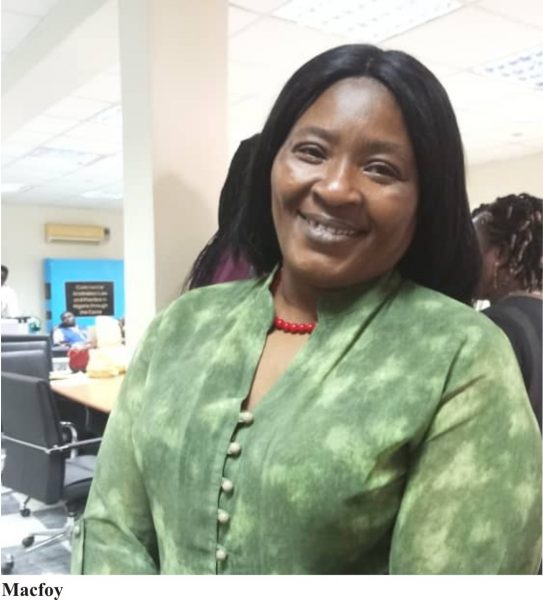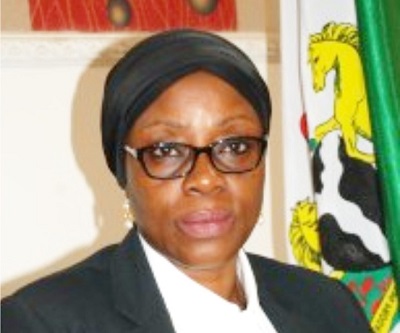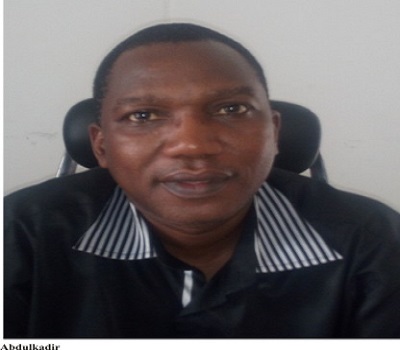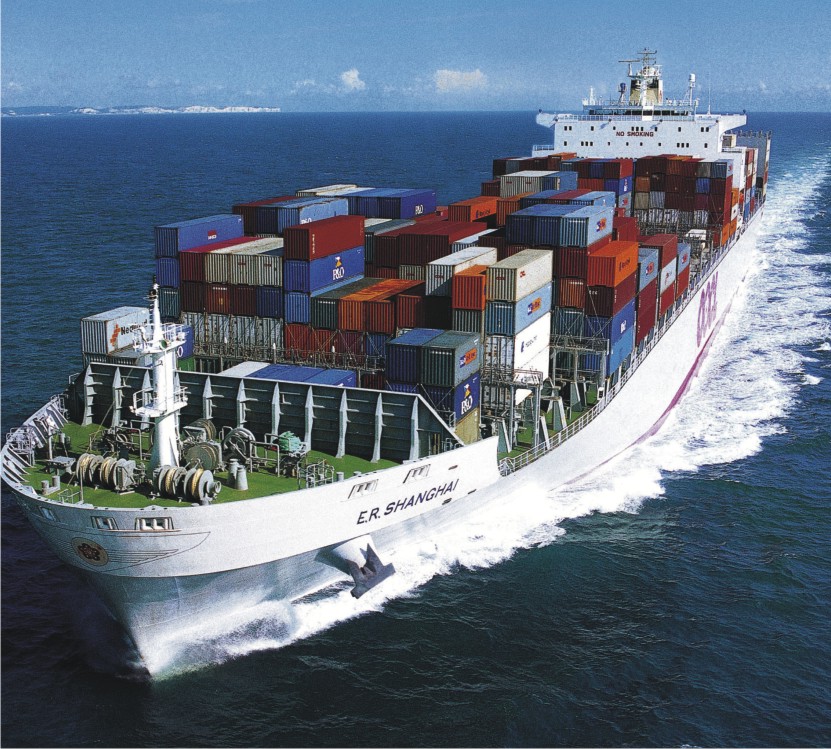Why Seafarers Dread Pension Schemes In Nigeria – Macfoy
By Kenneth Jukpor
Mrs. Rollens Macfoy is the President of the Nigerian chapter of African Women in Maritime (WIMA-Nigeria). She is also the Managing Director of Ocean Deep Maritime Services Limited. In this exclusive interview with MMS Plus newspaper, she speaks on a myriad of maritime and transportation issues. Excerpts:
Nigeria’s absence from the White List of the International Maritime Organization (IMO) has been described as a massive setback for training institutions and seafarers in the country. What’s the depth of this problem?
Ocean Deep Maritime Academy is approved by the Nigerian Maritime Administration and Safety Agency (NIMASA) to do training on some maritime courses. The disadvantage is that any student that graduates from here will not get any job onboard ships in the maritime industry.
We do specialized trainings but Nigeria isn’t on the White List of the IMO. The White List is a list of countries assessed by the IMO as properly implementing the STCW-95 convention. Nigeria’s absence from IMO White List inevitably affects the Certificate of Competency (CoC) of Nigerian-trained seafarers. This explains why Nigerians are discriminated. Ghana is on the IMO White List; South Africa, Egypt, Morocco, Mozambique, Liberia, Senegal are some African countries also on IMO White List.
There is more awareness with regards to maritime education and training across the globe. IMO has evolved other the years just as much as shipping has evolved. Nigeria hasn’t made commensurate improvement. Over the years Nigerian seafarers were generally accepted but as new measures and developments are being introduced, IMO has become stricter and Nigeria has to improve.
Shipping companies in Nigeria lament the loss of competent seafarers and posit that it’s only in Nigeria that seafarers pay taxes and have their pensions deducted at source. Is this the globally accepted procedure?
In Nigeria, seafarers pay 2 percent union dues as a kind of facilitation for their protection. It is the duty of the union to protect the interest of their members in terms of welfare, work conditions, among others. So, it’s upto the seafarers to decide if they want to belong to the union and pay the dues.
On taxes, I’m not aware of seafarers paying taxes even in Nigeria. What happens is that their employers, shipping companies, pay Nigeria Social Insurance Trust Fund (NSITF) on behalf of the seafarers. The companies also do group Life insurance for the seafarers and they also have Protection and Indemnity (P&I) insurance which covers the vessel and crew members. The shipping companies also deduct the pensions.
However, I would suggest that the pension scheme for seafarers should be a special one that is more robust than what is obtainable today. Seafaring is a specialized job where people spend months on the sea without family and retires after 10-15 years to get flimsy stories from Insurance companies. Someone could have over N10million pension and the Insurance company would say it would only disburse 25 percent which is N2million and start paying the others in bits when the individual reaches 50 years.
When I left paid employment, I had over N5million in my pension and after all my fights I got about N400,000. I was told that the other payment would be spread across 25 years. I had two Pensions because I worked for two different companies. While IBTC pays me N11,000 monthly, Premium pays me N6,000; but for someone who resigned and had over N5million it isn’t fair to receive less than N400,000. What would one do with N400,000 in the current state of Nigeria’s economy? Paying me N1million would still not have been fair. This is money I worked for and I should be able to invest it in whatever I choose to do now.
When I recall this experience, I imagine what people who didn’t have alternatives would do. Some people left their jobs because of sickness and they just want to start a new business. Why should Insurance companies decide to pay such persons peanuts for 25 years?
Most of these workers are never aware of these conditions in the pension agreement until they apply for their monies. Nigerians don’t read documents but I don’t blame them on this issue because it’s a deliberate ploy by the Insurance companies.
During the period when I was visiting the headquarters of the Insurance companies over my payment, I witnessed people fainting. So, I wouldn’t blame seafarers who opt out of Nigeria because they shouldn’t be subjected to such treatment after several years on the seas. There should be specialized pension scheme for seafarers because it is a specialized job and the payment should be factored differently.
As a matter of fact, the whole act of pension in Nigeria is a scam and should be reformed because pension has done more harm than good in this country. The woes of pension are too numerous.
One of the biggest developments for the Nigerian maritime sector in recent times is the Deep Blue Project launched by President Muhammadu Buhari almost one year ago. How would you rate this investment and the maritime security situation in the country today?
Well, I’ll score the Deep Blue Project about 50 percent because we haven’t attained the goal in the security of the nation’s maritime domain. Nevertheless, a journey of a thousand miles begins with a step. We can’t suddenly eliminate a challenge that has been around for decades. Beyond the Gulf of Guinea (GoG), other regions in Asia and Europe haven’t totally eliminated piracy; what they have been able to achieve is a high degree of sanity and Nigeria is beginning to see sanity on its territorial waters.
At WIMA-Nigeria, you recently had the maiden national summit, what other programmes are lined up for the near future?
We have a major programme in June because the 18th of May has been declared International Day for Women in Maritime. The upcoming programme will be purely educational and professional. The goal is to build the capacity of members and enhance their level of professionalism. We aren’t having the programme open to everyone because the goal is capacity building and we are focusing on our members.
It is our believe that this programme will provide the push needed by our members for new levels of professionalism in their respective fields.
What are the new challenges in manning operations since the COVID-19 pandemic and more recently Russia/ Ukraine war?
The biggest challenge has been the COVID-19 pandemic because shipping activities haven’t returned to normal since the outbreak of the pandemic. Nigerian seafarers like their counterparts abroad have to do COVID-19 tests before going onboard; but there is still the danger of contacting COVID-19 because people are coming onboard ships from various parts of the world.
It is a major challenge because there are some countries where the pandemic is spreading seriously and the countries are major shipping nations.
NIMASA issued a Marine Notice directing ship owners to pay for the COVID-19 tests, otherwise it would have become an additional burden on seafarers.
As someone who has been in the industry for years, there is alleged to be a certain kind of business approach and conditions in a pre-election year. From your experience, what should be expected and how can people better manage their businesses?
The only thing I’ll call for is proper security. Everyone knows that the pre-election period in Nigeria always comes with security challenges. This time around, the security problems have been lingering long before the election. So, people should thread carefully, try to not be where they shouldn’t be and make efforts to get home on time.
Nigerian elections come with all sorts of activities and threats. Sometimes, the innocent citizens or passerbys become victims of the electioneering conflicts.
As for the impact of the election on the economy and the standard of living, well I’m seeing the same crop of people again. The only difference could be the name of the political parties, but it’s the same persons with same ideas. The situation is also more worrisome because new people can’t come in. New genuine technocrats can’t come into governance in Nigeria because structures have been instituted to impede them.
When you have a situation where someone has to pay N100million to get a presidential ticket to contest for primaries, it doesn’t support genuine candidates to come forward. If someone has built his or her business over the years without a godfather, monopoly or fraud, such individual wouldn’t be keen to invest N100million to purchase presidential ticket for primaries. It’s important to note that the contestants aren’t even sure they will get the ticket and when they fail at the primaries what happens next?
Meanwhile, when they win the primaries and spend more before winning the elections, the first assignment will be to recoup their massive investments in the electioneering process. These challenges have obstructed intellectuals and those with the technical know-how to govern Nigeria. So, Nigeria remains in the hands of few people who keep revolving and changing portfolios.












